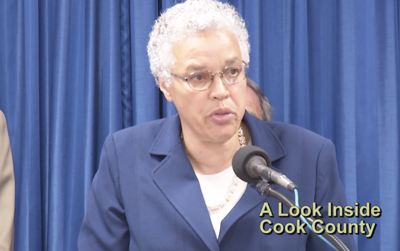
- By Taylor Millard, Taxpayers Protection Alliance


The Illinois and Chicago region economies suffered greatly during COVID. The Illinois Policy Institute estimated that household income plunged by 35 percent for those making around $40,000 from February-April 2020. Those earning between $40,000 and $75,000 lost a quarter of their jobs. Both unemployment rates have yet to reach pre-pandemic levels with the Illinois statewide unemployment rate second worst in the nation.
A deeper dive into the numbers show that 56 percent of participants in Cook County’s GBI effort are working, but struggling. Almost 40 percent of those in the Chicago GBI pilot either lost wages or hours due to the pandemic or are unemployed. A quarter of the participants were laid off due to COVID. The struggling economic situation plays a major factor.
However, there’s no guarantee that these GBI pilot programs will produce the desired results. A similar experiment in Finland from 2017-2018 focused on 2,000 unemployed Finns. While 34.8 percent of the test group felt “quite strong” about their future, 30% of the control group had similar feelings. Another in Stockton, California, involved 125 people from 2019 to 2021. It also found that people felt better knowing that the income was coming into their bank account.
More importantly, neither test resulted in people finding full-time work – something proponents routinely gloss over. Finnish researchers discovered that the basic income model didn’t result in increased employment. One University of Helsinki social policy professor called the results disappointing because basic income recipients supposedly “had clearly better incentives to work.”
A Mercatus Institute analysis by Dr. Veronique de Rugy found that the costs of GBI outweigh the benefits. The analysis also found the GBI often becomes counter-productive, creating more problems than it ends up solving. Similarly, a 2020 World Bank study of Germany’s child allowance program found that married and single mothers worked fewer hours. It also suggested that people might take on more volunteer work, instead of paid work that more effectively feeds the economy.
Other concerns about UBI/GBI include whether the costs outweigh the benefits. The Taxpayers Protection Alliance raised worries about this when discussing Baltimore’s planned GBI pilot program, which will cost $5,000,000 over two years. There is little evidence that the GBI programs in either Baltimore or Chicago will fare differently than their predecessors across the globe.
The answer must come from community-focused organizations and private sector employees. Instead of taxing the populace to pay for these programs, the government should recede from the picture, to give the free market the tools and resources to hire more workers, giving them long-term economic security, as opposed to a government check once a month for an undefined period of time.
Taylor Millard is an Investigative Reporter at the Taxpayers Protection Alliance.
TELL YOUR FRIENDS ABOUT CITIZENS JOURNAL Help keep us publishing –PLEASE DONATE



